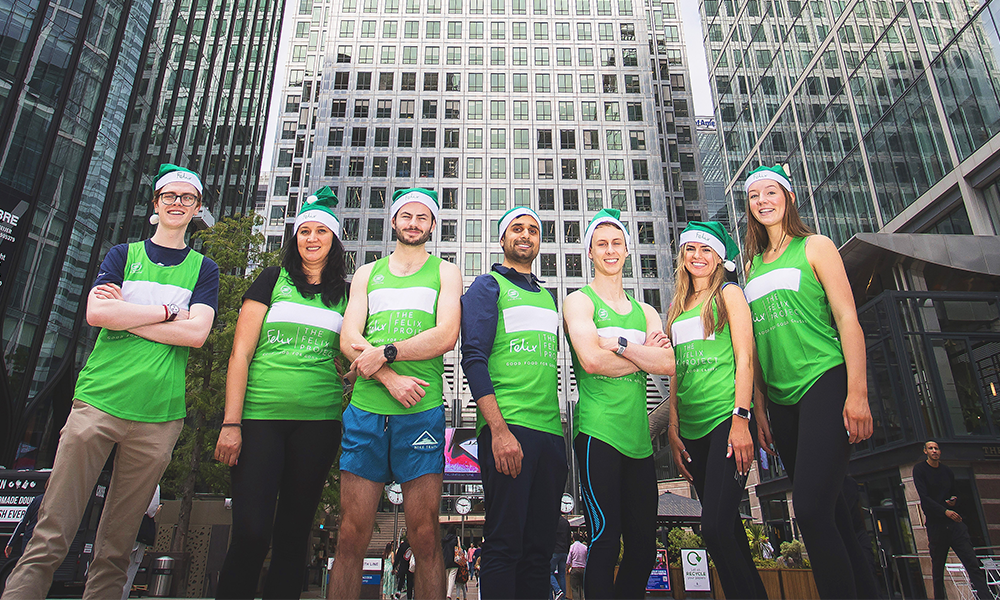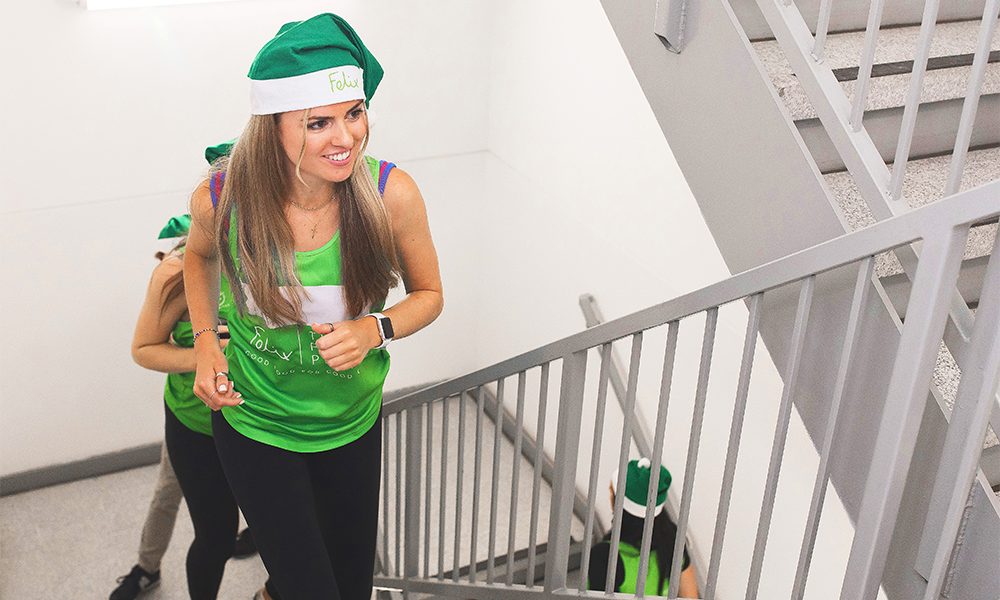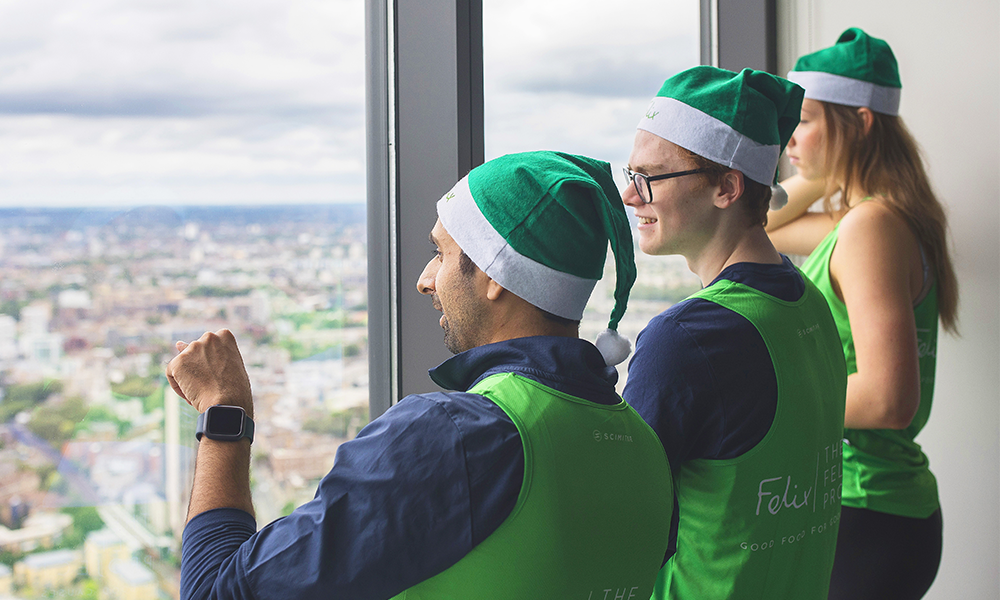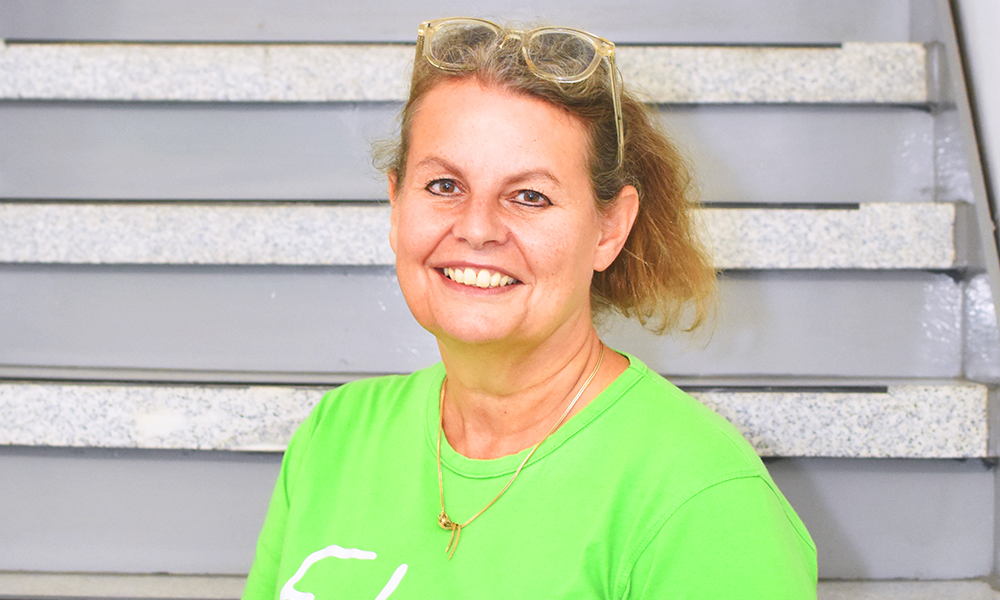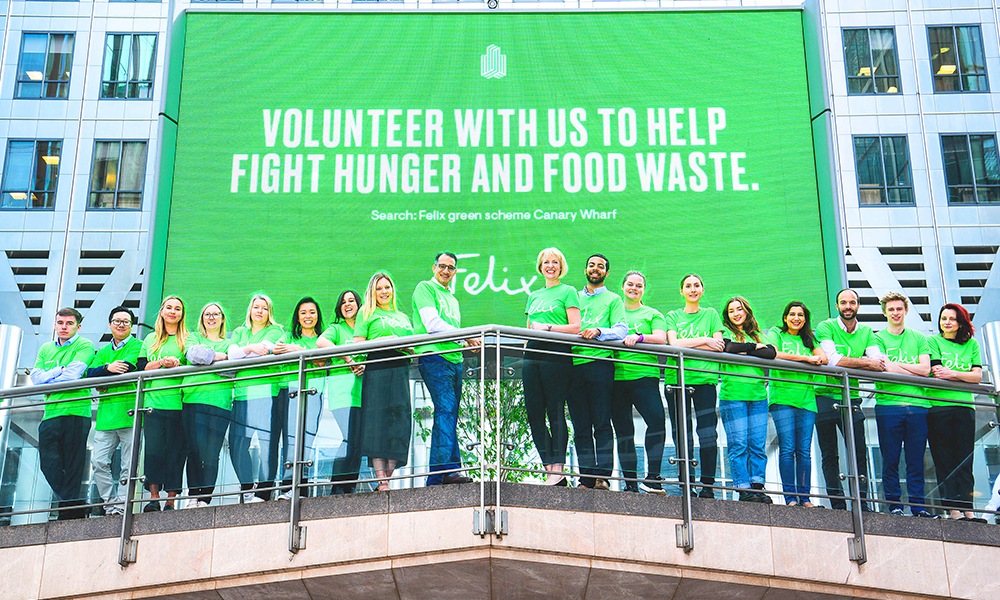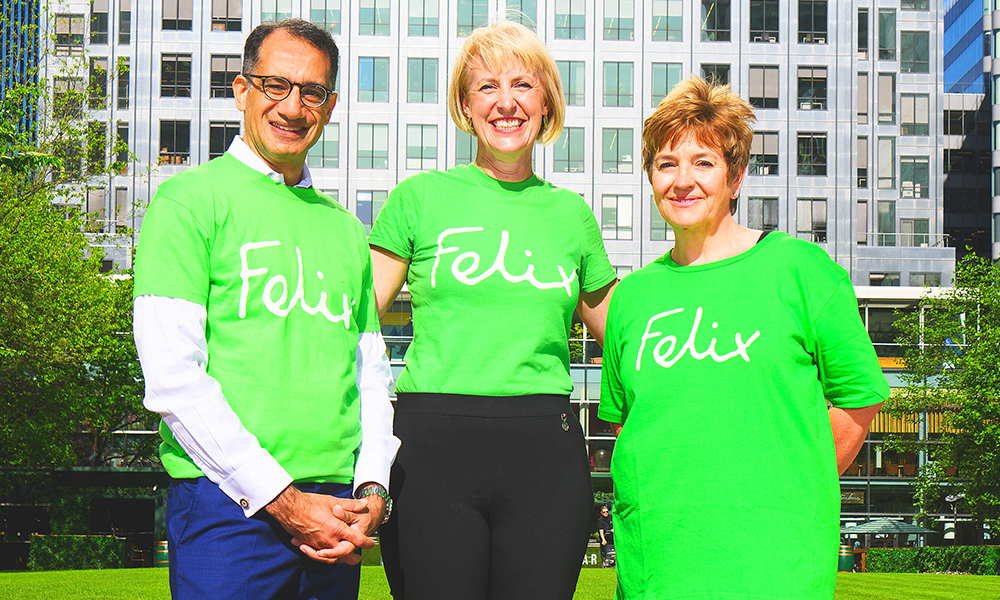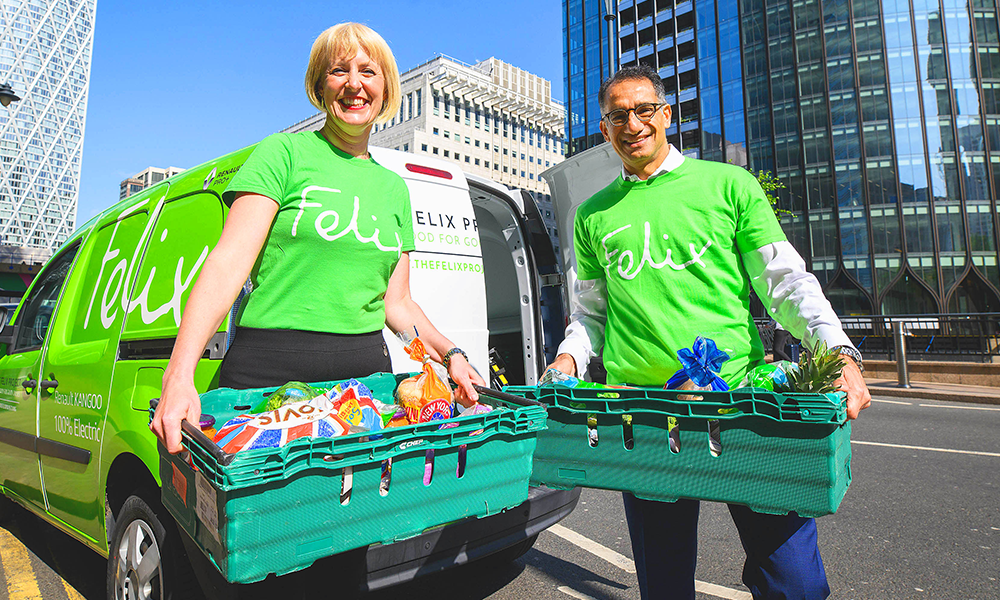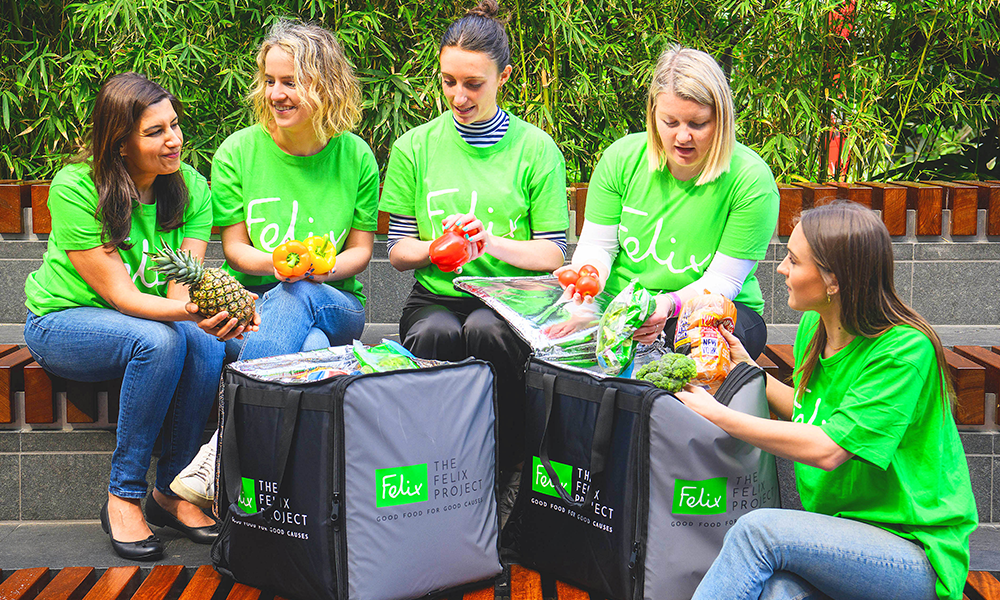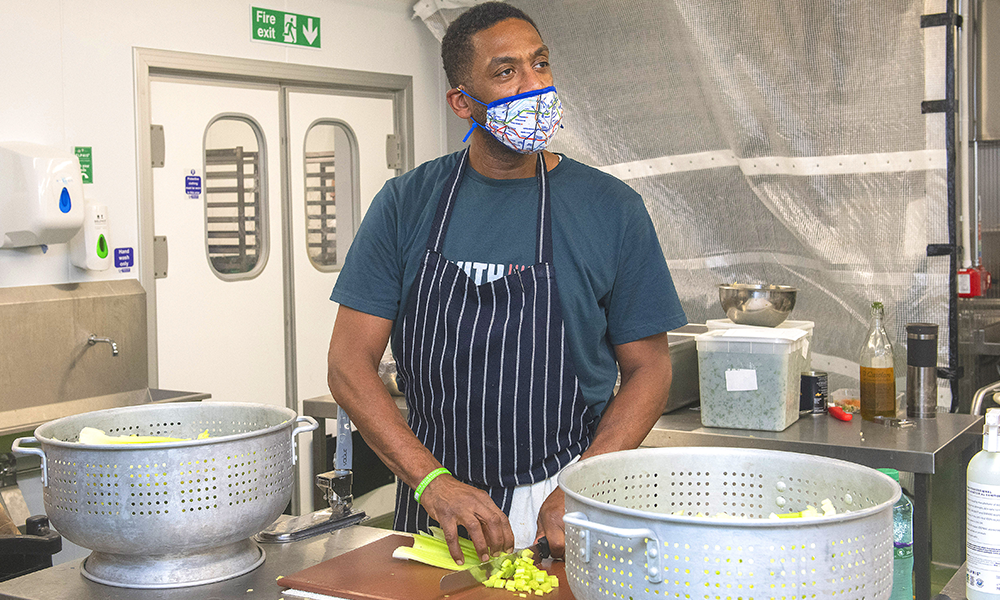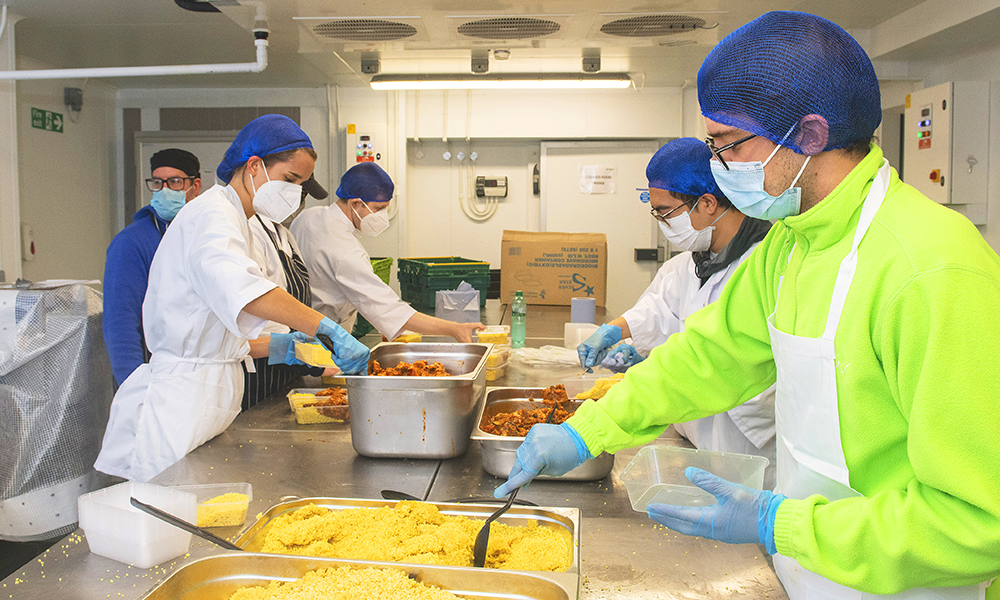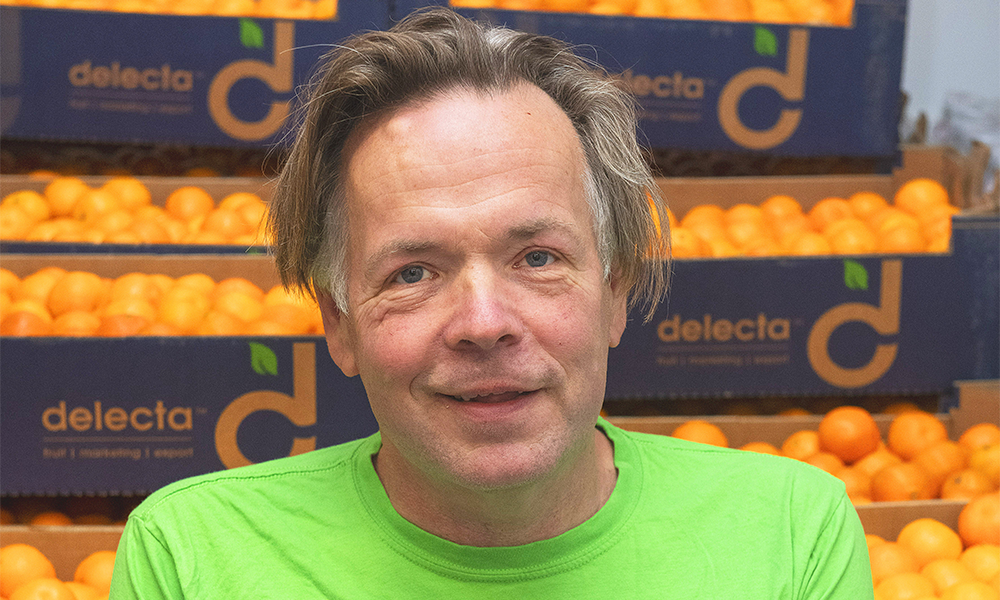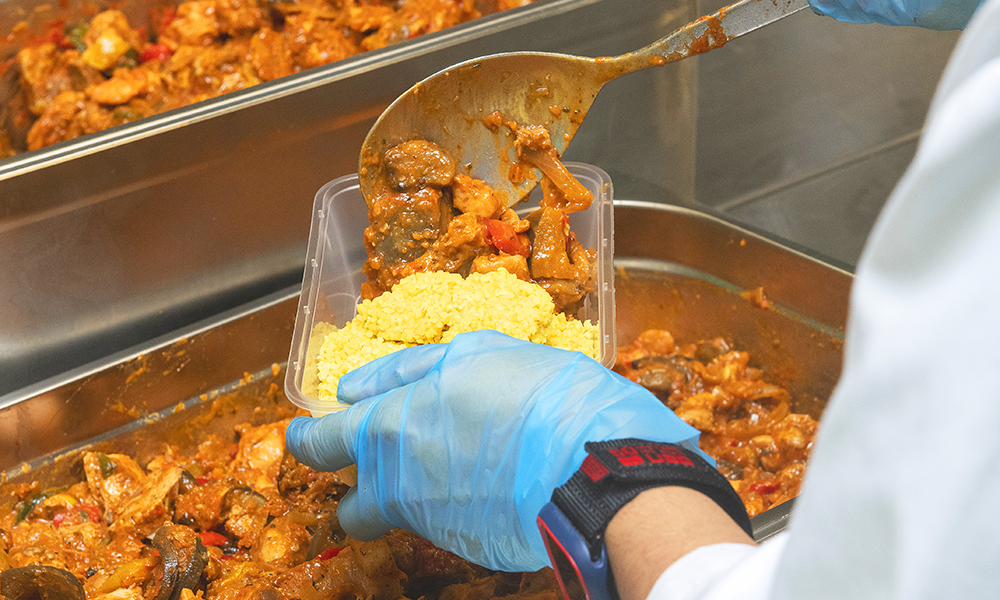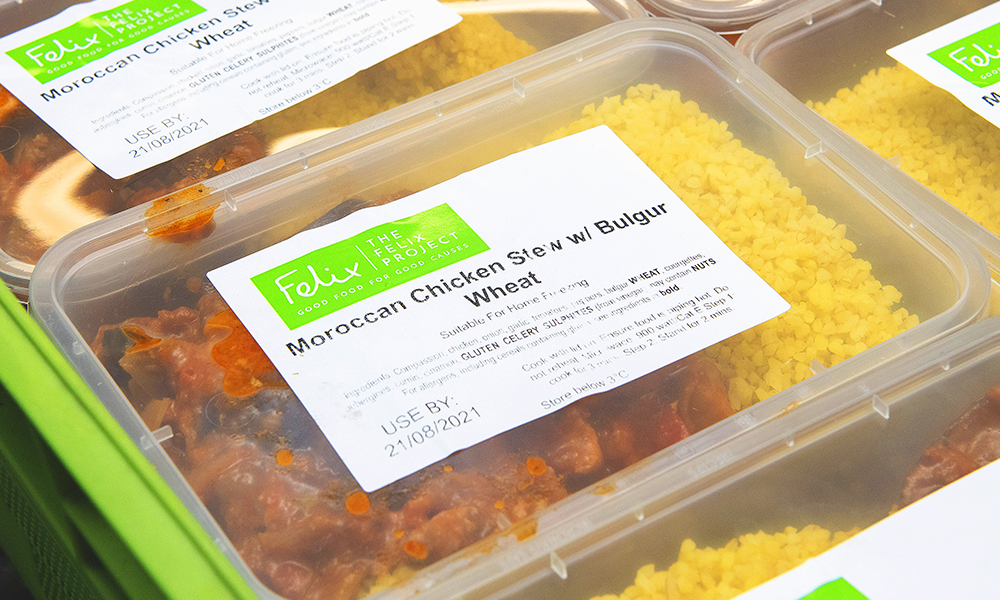How Wharfers can climb 48 storeys of One Canada Square to help charity feed hungry Londoners
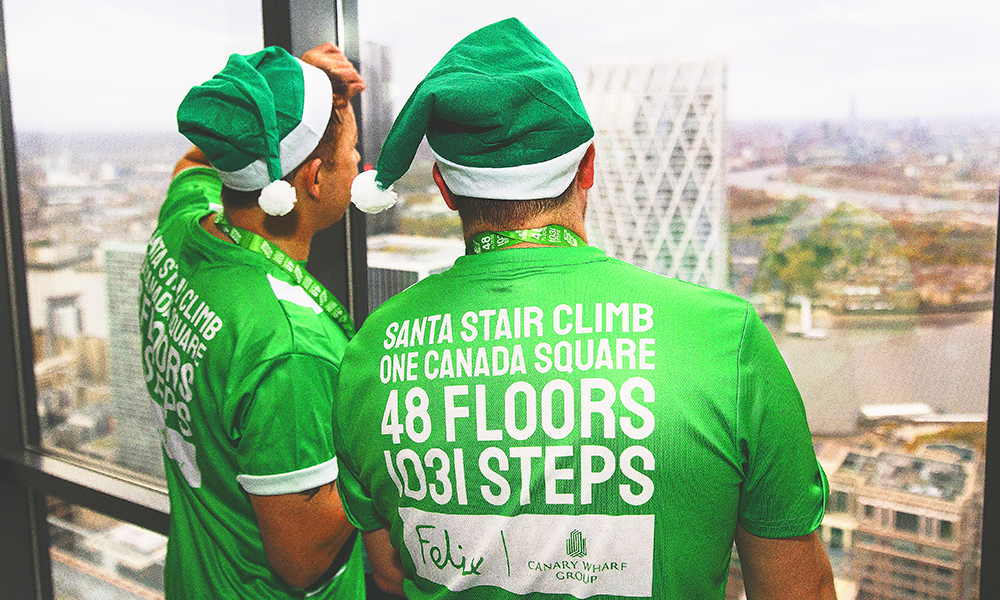
Subscribe to our free Wharf Whispers newsletter here
Having filled the stairwells in One Canada Square with a sea of green last year, Wharfers are once again being invited to take on the tower to raise money for charity.
The Felix Project’s Santa Stair Climb is set to return to the heart of Canary Wharf on December 8, 2024, with participants challenged to scale 48 storeys of the building on foot.
The reward?
A spectacular view across the capital and the knowledge that the cash you’ve raised will help save surplus food from the bin and be redirected to feed Londoners in need.
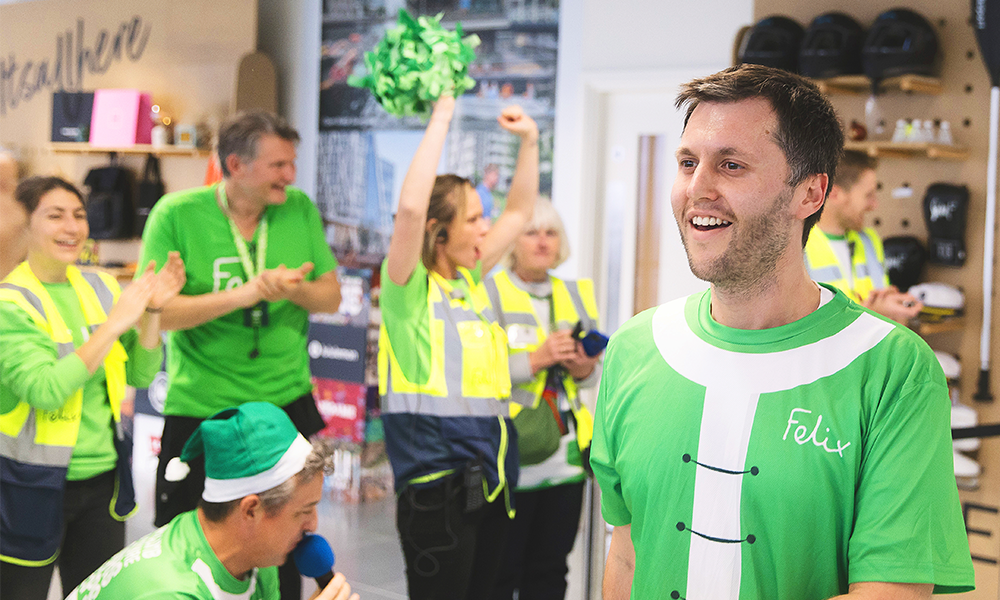
a surge in need
“We’ve experienced a real surge in need this year, and we know that winter is going to be really tough for many people across London,” said Will Savage, head of corporate partnerships at The Felix Project.
“We are London’s largest food re-distribution charity.
“We rescue high-quality surplus food that can’t be sold and would therefore go to waste and deliver it to about 1,000 community organisations, such as food banks, homeless shelters and primary schools – all working on the front line to feed people who are experiencing hunger in the capital.
“A lot of that work is done locally in Tower Hamlets where we deliver to more than 100 organisations and dozens of primary schools.
“We know that more than half of working families are having to turn to food banks to put food on their tables.
“Unfortunately it is a problem that’s getting worse.
“We’ve moved from a pandemic straight into a cost-of-living crisis and we know that’s having a devastating effect on communities across London.
“We also found in our survey that one in four working families are struggling to feed themselves, and for one in seven that’s a daily struggle.
“This demand means many food services are buckling under increased pressure and that’s why The Felix Project wants to save more food and feed more people.”
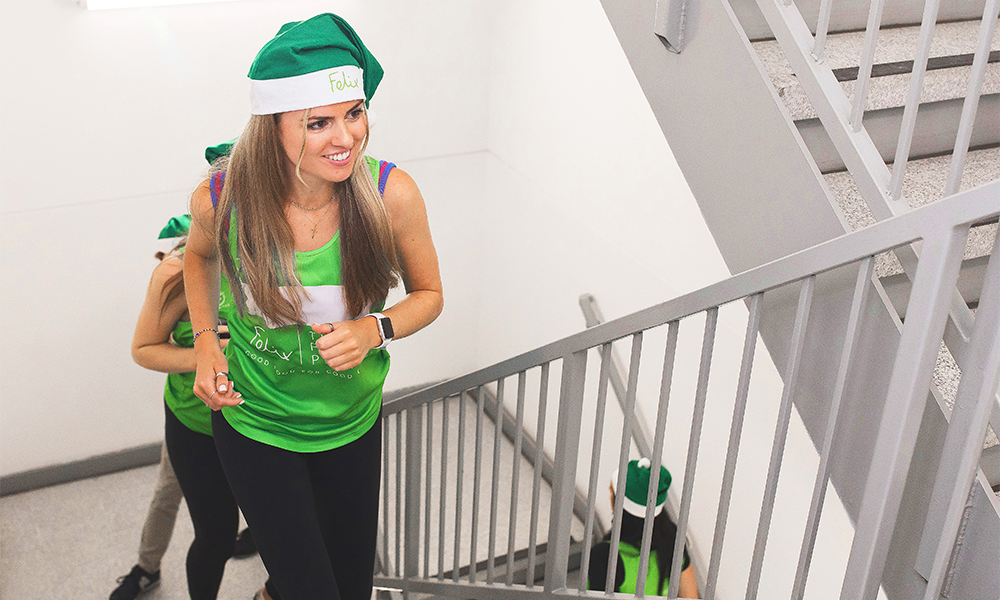
how the Santa Stair Climb contributes
To do that, like any organisation, it needs both cash and volunteers.
After launching last year, the Santa Stair Climb is the charity’s flagship fundraising event with capacity for 1,000 participants.
In addition to an entry fee, climbers commit to raising £300 each for the charity – a sum that could provide 825,000 meals for Londoners in need should the maximum number of people take part.
“It’s a really great way for people to support our work and help feed Londoners in need,” said Will. “I went up last year and it was amazing.
“When you’re at the bottom, 1,031 steps feels like a lot but it was great to get to the top and to see the support that was there.
“It’s Santa-themed, so we provide a Felix green Santa outfit for everyone in the spirit of Christmas, which also recalls the fact that Santa was green originally.
“There’s a fantastic atmosphere at the top and beautiful views. Participants’ families can even come along for the celebration.
“We’re hoping as many people as possible sign up this year because it really will have a huge impact on what we can do.
“The climb takes about half an hour to complete although that will vary by who’s taking part.”
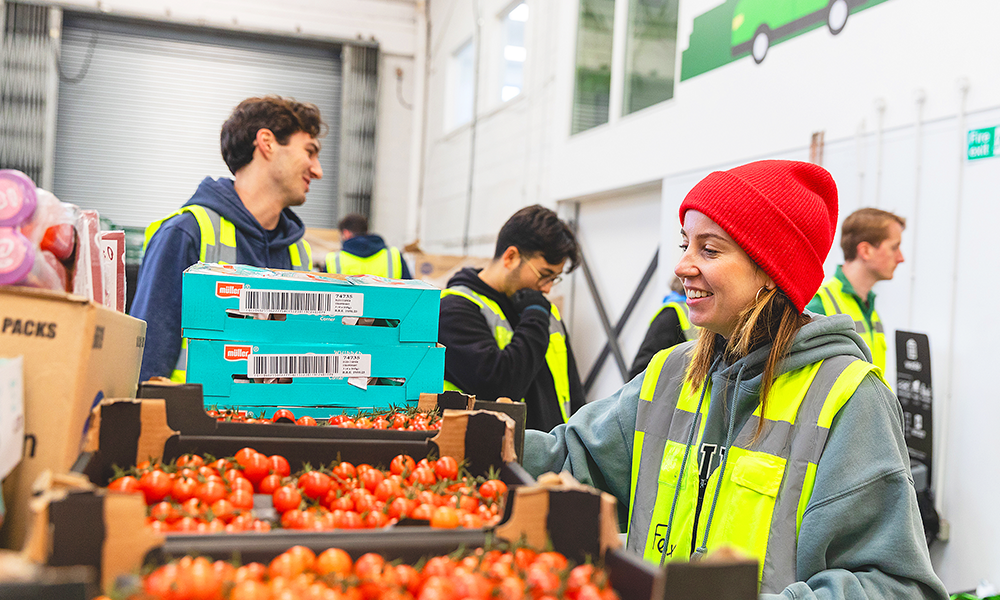
filling the stairwells
Last year saw hundreds of participants take on the challenge – a mixture of corporate supporters and individuals.
“The Santa Stair Climb is both challenging and rewarding and Morgan Stanley is looking forward to taking part again this year as we continue to support The Felix Project,” said Anish Shah, Morgan Stanley’s managing director, global capital markets.
The Santa Stair Climb is part of Canary Wharf Group’s ongoing collaboration with The Felix Project, which kicked off in 2023 with the launch of the partners’ Green Scheme.
Will said: “We know CWG aims to achieve net zero by 2030 and one way is to help reduce food waste.
“In the first year of the Canary Wharf Green Scheme, we got seven restaurants signed up.
“In practice, teams of people pick up food from retailers and outlets based on the estate and they take it by bike or electric van directly to organisations who are feeding people in the vicinity.
“In that first year we saw 118 individuals volunteer with us, which equates to 26,000 hours of work and this meant that over 6,900kg of food was redistributed.
“That’s about 16,500 meals that we’ve been able to rescue and save from going in the bin.
“The mission to tackle the twin problems of food waste and hunger really resonated with me – it’s why I wanted to join the charity.
“Seeing what it does, it’s not difficult to understand it’s very valuable.
“I remember going to our Park Royal depot at the time to meet the team and see what it was about.
“Seeing the volumes of really high quality food that would have otherwise gone to waste made me think how insane it was that this resource was available but could have gone to landfill, even though people are hungry.
“Having been here for four years and seeing the need is still growing, I know there’s still much more that we need to do.
“I’m really proud to play a small part in that mission.
“You never quite get used to the idea that food would have been thrown away if it wasn’t with us.
“It’s great that The Felix Project is there to redistribute it and make such a difference to people’s lives at the same time.”
Slots are still available for the Santa Stair Climb so Wharfers can play their part in supporting the charity’s work.
The Felix Project is also looking for volunteers on an ongoing basis to support its activities.
Find out more about its work here

key details: the Santa Stair Climb
The Santa Stair Climb is set to take place at One Canada Square on December 8, 2024, with half-hourly waves of climbers starting at 10am.
The final wave will set off at 2pm.
Individuals can participate for £30 each, while groups of four can book in for £100 (£25 per head).
The fundraising target for each person taking part is £300.
Find out more about the challenge here
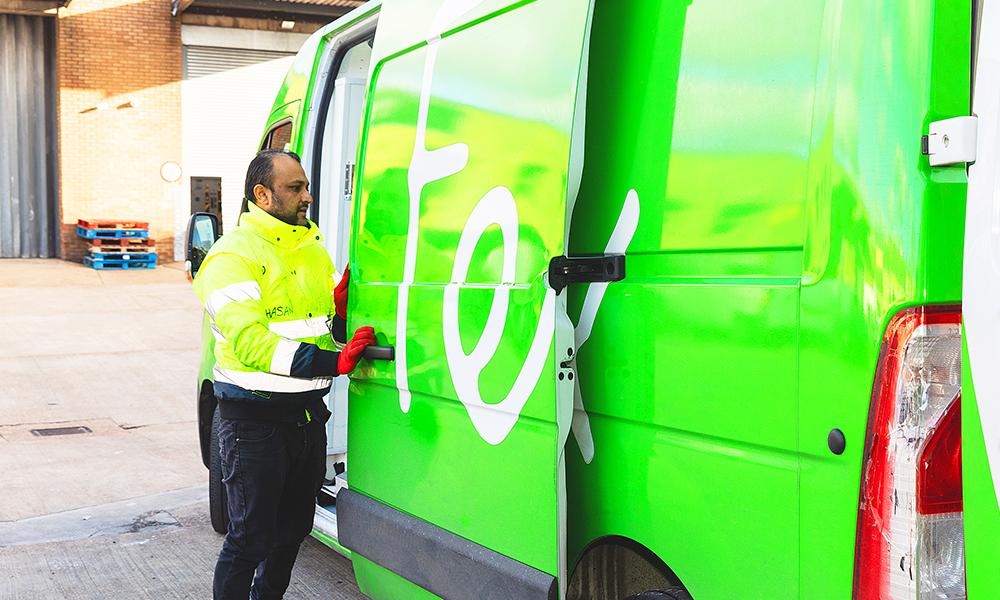
case study: EastendHomes – why the Santa Stair Climb matters
>> The housing association provides homes to people based in Tower Hamlets.
In early 2020 it started offering a food service to just a handful of residents but now supports around 225 households a week.
EastendHomes’ community engagement manager, Paul Wilson, said: “We get new people each week.
“The hardest thing for us and our volunteers, is when we have to send people away.
“That is always dispiriting, but at least we are doing what we can.
“The service we provide could not happen without the ongoing support of The Felix Project.
“We would not be able to afford to give people this food – if each bag is just £10 worth, it would cost thousands of pounds a week to fund.
“That’s why it’s so important that Felix gets more support and funding, because it means we can do this and fewer people get turned away.
“This service is helping. We supplement people’s budget and that might give a family a bit of slack in the autumn to buy their kids school uniform, a pair of shoes or a treat for a child.
“All parents want to do that whenever they can and Felix is permitting that, it’s wholly positive.”
Read more: A Kiss For Cinderella set to be The Space’s festive production
Read Wharf Life’s e-edition here
Subscribe to our free Wharf Whispers newsletter here
- Jon Massey is co-founder and editorial director of Wharf Life and writes about a wide range of subjects in Canary Wharf, Docklands and east London - contact via jon.massey@wharf-life.com




